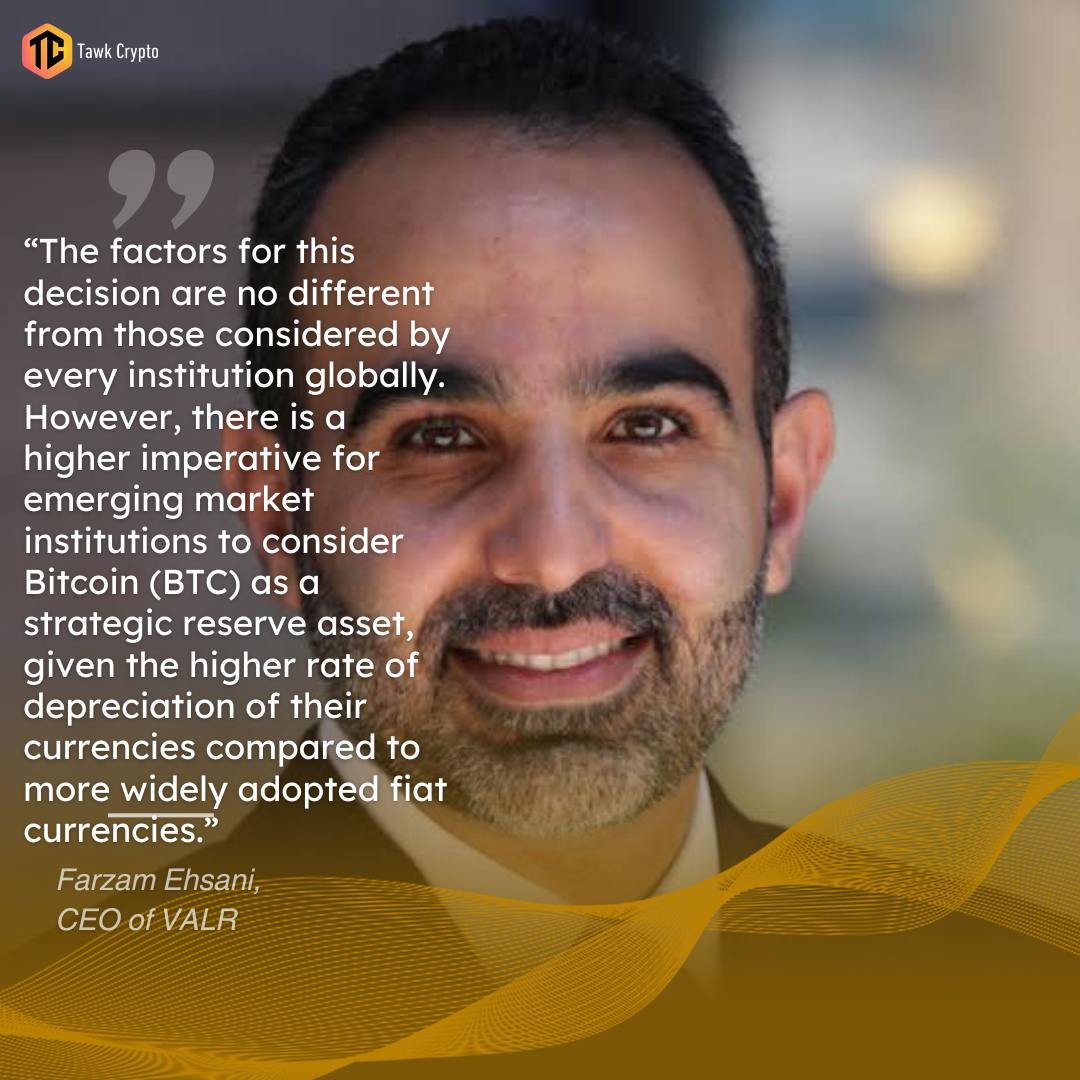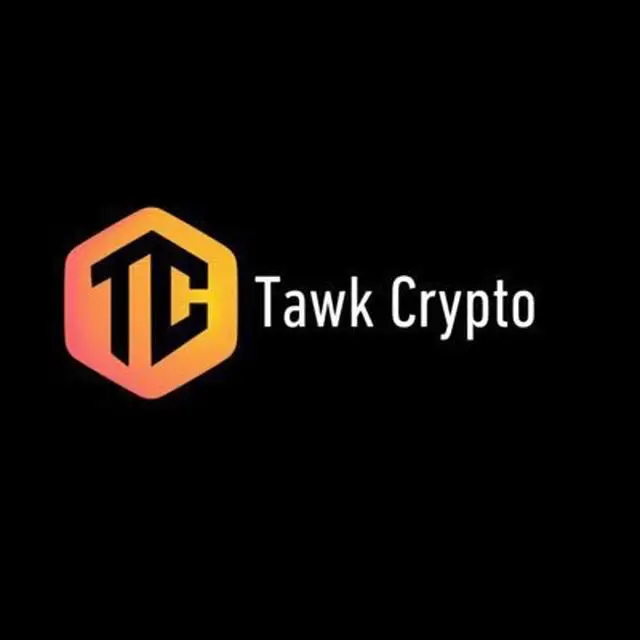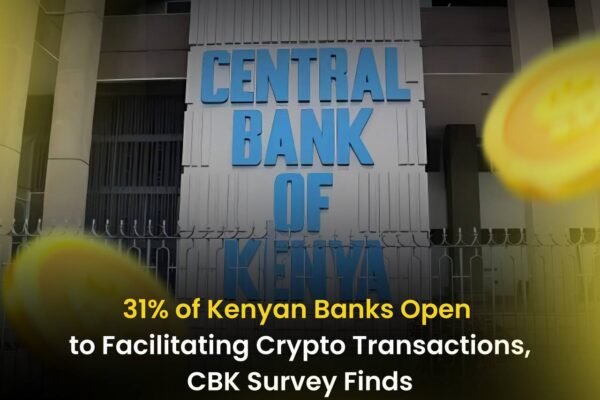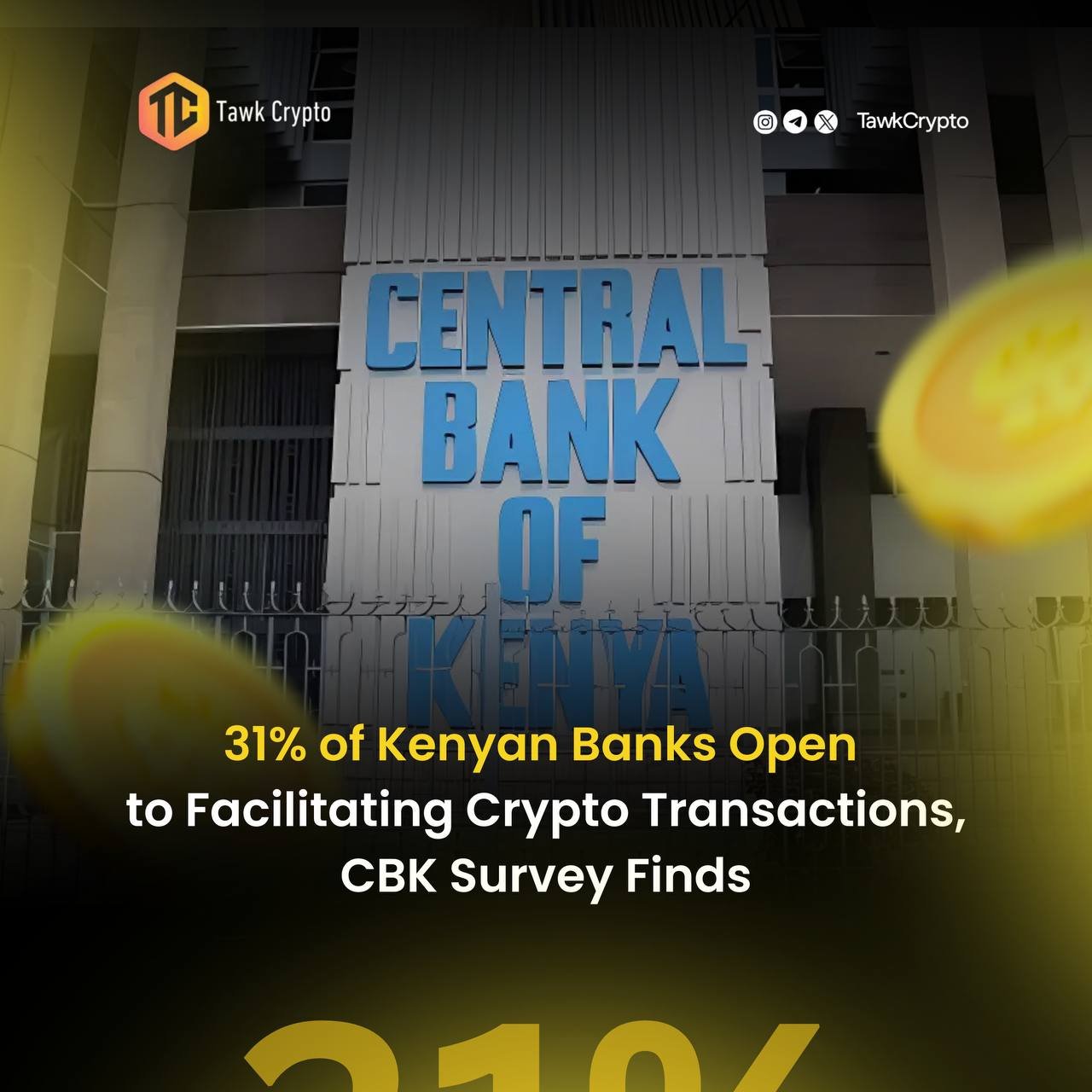

VALR CEO Urges Emerging Market Institutions to Adopt Bitcoin as Currency Depreciation Worsens
The urgency for emerging market institutions to adopt Bitcoin (BTC) as a reserve asset is growing as local currencies continue to depreciate against stronger global fiat currencies. Farzam Ehsani, CEO of VALR, South Africa’s leading crypto exchange by trading volume and institutional participation, has reinforced the argument that Bitcoin could serve as a strategic hedge against inflation and currency devaluation.
This statement comes in the wake of AltVest, a South African investment firm, becoming the first publicly-listed African company to add Bitcoin to its treasury reserves—a move that may set a precedent for others on the continent.
Read also The Rise of African Crypto Exchanges: How VALR Is Leading the Charge
Why Emerging Market Institutions Should Consider Bitcoin
According to Ehsani, institutions in emerging markets face faster and more severe currency depreciation than those in developed economies, making Bitcoin a more urgent consideration.
“The factors for this decision are no different from those considered by every institution globally. However, there is a higher imperative for emerging market institutions to consider Bitcoin (BTC) as a strategic reserve asset, given the higher rate of depreciation of their currencies compared to more widely adopted fiat currencies.”
Emerging markets, including South Africa, Nigeria, Argentina, and Turkey, have all experienced severe local currency declines over the years due to economic instability, inflation, and monetary mismanagement. Holding Bitcoin as a treasury asset could provide companies with an alternative store of value immune to government intervention and traditional financial system risks.
Challenges in Institutional Bitcoin Adoption
While Ehsani strongly advocates for Bitcoin’s inclusion in corporate reserves, he acknowledges that the biggest challenge isn’t financial—it’s psychological.
“The biggest hurdle is psychological. Convincing a committee is far more difficult than persuading an individual, which is why institutions have been slower to enter the crypto space compared to retail investors.”
Key Barriers to Institutional Bitcoin Adoption:
- Volatility: Bitcoin’s price fluctuations create uncertainty for risk-averse institutions.
- Regulatory Uncertainty: Many governments and financial regulators remain cautious about Bitcoin’s role in corporate treasuries.
- Accounting & Risk Management: Businesses must establish frameworks for handling Bitcoin under corporate governance and financial reporting standards.
Despite these challenges, institutional interest in Bitcoin is rising globally, with companies like MicroStrategy, Tesla, and now AltVest paving the way for corporate adoption.
Bitcoin as a Superior Long-Term Asset
Ehsani also points to Bitcoin’s historical outperformance compared to other asset classes, including gold and the S&P 500, as a compelling reason for institutions to hold BTC in their reserves.
“If an institution has assets it can afford to hold long-term, Bitcoin is an obvious choice. Its impressive growth over the past 15 years and its potential for further appreciation make it a compelling reserve asset.”
Bitcoin vs. Traditional Assets (2009-2024):
- Bitcoin: Over 100,000,000% appreciation since inception.
- Gold: Approximately 500% increase in the same period.
- S&P 500: Roughly 450% gain over 15 years.
Galaxy Digital forecasts that Bitcoin’s growth will continue in 2025, further reinforcing the idea that businesses should allocate a portion of their balance sheets to BTC.
Will More African Companies Follow AltVest’s Lead?
AltVest’s decision to hold Bitcoin as a treasury asset is significant as it marks the first public company in Africa to take this step. If economic conditions in South Africa and other emerging markets continue to deteriorate, more firms could explore BTC as a safeguard against inflation and currency devaluation.
With VALR’s CEO publicly advocating for institutional Bitcoin adoption, it may only be a matter of time before other African financial institutions, corporations, and even central banks reconsider their stance on digital assets.







